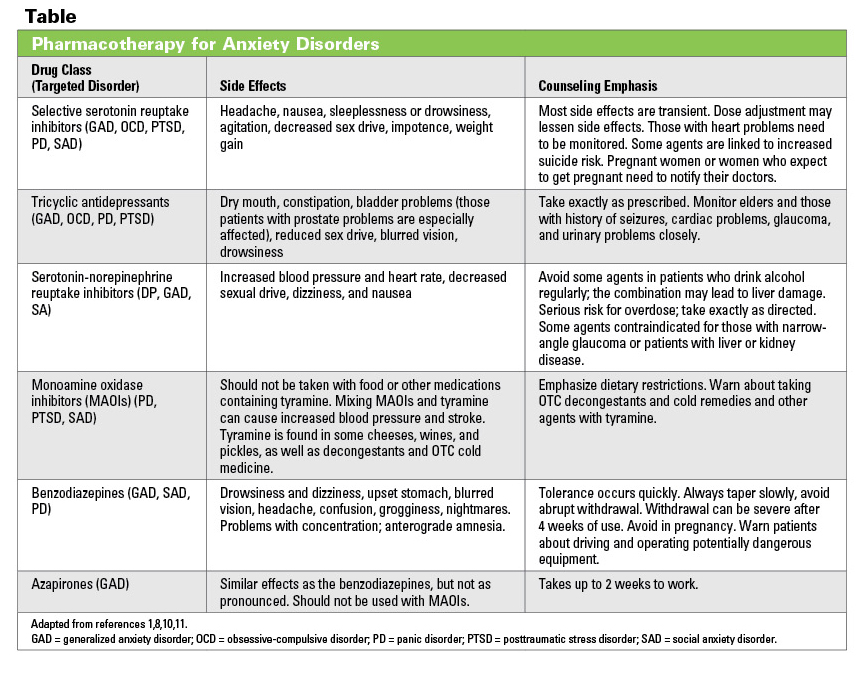Lack of intimacy in relationships
Resolving intimacy problems in a relationship
Intimacy is the ‘connectedness’ between two people. A problem with (or a lack of) intimacy may indicate a problem with the relationship.
- Dealing with intimacy problems in a relationship
- Common reasons for intimacy problems in a relationship
- Restoring intimacy in a relationship
Connectedness with other people is one of the basic needs of almost every person on the planet. This includes closeness with friends, family, a peer group, and of course closeness to another person in a relationship.
Intimacy in a relationship (an interpersonal relationship, to use a clinical term) is the breadth of things like love, physical contact, trust and closeness that is shared with another person.
“Intimacy is both emotional and physical, meaning it can be sexual and non-sexual.”
Intimacy is both emotional and physical, meaning it can be sexual and non-sexual. It is one of the most important aspects of a relationship because it is a fundamental ingredient of the ‘glue’ that binds people together.
Dealing with intimacy problems in a relationship
Intimacy is a lot more than just touching, kissing or holding hands. Intimacy is also the extent to which someone (hopefully) knows the other person ‘inside out’, as well the extent of such concepts as trust, commitment and understanding.
Intimacy is the ‘connectedness’ between two people. This means that when there is a problem with (or a lack of) intimacy), it may indicate a problem with the relationship.
Common reasons for intimacy problems in a relationship
A lack of intimacy in a relationship may occur for a whole range of reasons. Sometimes they may be interconnected. Here are some of the most common.
1) Lack of communication
As mentioned, intimacy covers so much more than just physical contact. In fact, much of the emotional closeness between two people depends on how comfortable they feel when communicating.
In fact, much of the emotional closeness between two people depends on how comfortable they feel when communicating.
In order for two people to really know each other, communication needs to be open, transparent, honest and effective. Good communication is as much about effective listening as it is about putting things into words. For example, if one person is traditionally more ‘closed’ then they may need to work on strategies to be more open — while the other person may also need to be mindful and provide more space.
A breakdown in communication means there is a disconnect from which conflict can result (for example, one person saying “you never listen” or “I don’t feel like you understand).
2) Depression, anxiety or other mental illness
A mental health condition like depression or anxiety can affect a person’s outlook or perception of the world around them. It can even affect how someone feels about their partner or spouse (or rather, how they believe
their partner sees them).
A mental illness can also inflate stressors in life which can cause minor issues to ‘blow up’ out of proportion. For example, a person who is feeling highly anxious or depressed may ‘lash out’ at their partner when faced with stressful situations like a difficult family gathering or a bad day at work. A person with poor self-image or low self-esteem may also have difficulty with intimacy (for example, they may feel self-conscious or feel excessively vulnerable).
3) Resentment, anger or mistrust
Arguments and disagreements are a normal part of most relationships. However, those feelings generally pass and are resolved relatively quickly. Consider whether persistent negative feelings like anger or jealousy are interfering in intimacy or are becoming a feature of a relationship (rather than unexpected incidents). If so, there will likely be a motive and underlying cause that needs to be identified and understood.
4) Having children
What could be more representative of intimacy than having children together?
Even so, being a parent is also one of the toughest jobs in the world. Ask any new parent and they’ll probably tell you that feeding, cleaning up mess, getting kids to sleep and the countless other tasks involved in parenting don’t leave much time or energy for other things. It’s also possible that, with so much time and energy focussed on children, the result could mean little time for doing the same for the other person.
Ask any new parent and they’ll probably tell you that feeding, cleaning up mess, getting kids to sleep and the countless other tasks involved in parenting don’t leave much time or energy for other things. It’s also possible that, with so much time and energy focussed on children, the result could mean little time for doing the same for the other person.
Although kids are a natural consequence of the wonders of intimacy, they can, in some cases, inadvertently contribute to less intimacy in a relationship.
5) Job or other out-of-home commitment
A fulfilling job is an important part of remaining happy. When more than half your waking weekday hours are spent in a certain location or around particular people, it’s obviously beneficial if you can feel fulfilled.
Most people want to do well and desire to fulfil their ambition. Some people, however, are so heavily career-focussed that it can get in the way of closeness. For example, talking to a partner excessively about work, being away from home, having little time or energy after working long hours, or work interfering in ‘personal time’ (like checking work emails in bed) can all contribute to a lack of intimacy in a relationship.
Restoring intimacy in a relationship
As the saying goes, it takes two to tango. Resolving intimacy issues very often requires both people to be open, honest, considerate and non-judgmental. It also may require one or both people to allow themselves to feel ‘vulnerable’. Here are some ways to get things started.
1) Work on your communication skills
Talking about problems is very often one of the best things you can do. By talking about concerns and worries, a couple may be able to ‘get things out in the open’. Be mindful that effective communication is a two-way street — it is as much about listening as it is about talking.
2) Work on resolving conflict
It’s much easier to feel close and connected to someone when you haven’t had an argument or heated disagreement. The capacity to calmly manage feelings of anger and frustration is a key to restoring intimacy.
3) Do activities together
To use another popular saying, the couple that plays together, stays together. Find interests that you both enjoy (it doesn’t have to be an expensive restaurant or night out, as it could even be just walking the dog together) make plans and, most importantly, stick to them.
4) Talk to a relationship counsellor
Couples’ counsellors, also called relationship counsellors, work to help people overcome conflict. Unfortunately, they often see couples only after it’s too late. Seeing a relationship counsellor before problems become unmanageable is a proactive, effective step that can improve a relationship.
5) Talk to a MensLine counsellor
Did you know that MensLine Australia was originally founded as a relationship advice line? Although the service’s scope has expanded significantly over the years, a huge proportion of people who contact MensLine Australia still do so to talk about relationship issues. Counsellors are available 24 7 if you just want to talk or chat online.
Counsellors are available 24 7 if you just want to talk or chat online.
MensLine Australia is available 24 hours a day, seven days a week, with professional counsellors providing information and support for all relationship issues.
Call us on 1300 78 99 78 or access online counselling.
More from relationship advice for men
FilterCommunicationFamilyFriendshipIntimacyMythsProviding supportSame-sexSelf-helpSignificant days
Active listening
Listening is an important part of effective communication. We have conversations throughout the day, but sometimes we’re not listening as well as we could. Active listening skills go a long way towards addressing misunderstandings and establishing healthier relationships.
Read more
Active listening
Listening is an important part of effective communication. We have conversations throughout the day, but sometimes we’re not listening as well as we could. Active listening skills go a long way towards addressing misunderstandings and establishing healthier relationships.
We have conversations throughout the day, but sometimes we’re not listening as well as we could. Active listening skills go a long way towards addressing misunderstandings and establishing healthier relationships.
Read more
Ten ways to become a better partner
Relationships are at the core of our lives. In a positive relationship, both partners feel valued, loved and nurtured. Here MensLine Australia gives you 10 tips to get the most out of your relationship.
Read more
Social connections - past, present and future
We often talk about the power of connections and support networks, as having a strong circle of people around you is one of the single most beneficial ways to maintain your mental health. Here’s how you can grow social connections from the past, present and future!
Read more
Reconnecting with friends
Never have we been more connected to everyone around us. Advances in technology have launched multiple social media platforms allowing us to be no more than just a few clicks away from connecting to someone, or anyone for that matter! Then why is it we’ve never felt more alone?
Advances in technology have launched multiple social media platforms allowing us to be no more than just a few clicks away from connecting to someone, or anyone for that matter! Then why is it we’ve never felt more alone?
Read more
Resolving conflict
Conflict will happen from time to time in your life, but if you deal with it properly, it doesn’t have to be destructive. Here, MensLine Australia looks at the signs of damaging conflict and what you can do.
Read more
Social connections - past, present and future
We often talk about the power of connections and support networks, as having a strong circle of people around you is one of the single most beneficial ways to maintain your mental health. Here’s how you can grow social connections from the past, present and future!
Read more
Reconnecting with friends
Never have we been more connected to everyone around us. Advances in technology have launched multiple social media platforms allowing us to be no more than just a few clicks away from connecting to someone, or anyone for that matter! Then why is it we’ve never felt more alone?
Advances in technology have launched multiple social media platforms allowing us to be no more than just a few clicks away from connecting to someone, or anyone for that matter! Then why is it we’ve never felt more alone?
Read more
Resolving conflict
Conflict will happen from time to time in your life, but if you deal with it properly, it doesn’t have to be destructive. Here, MensLine Australia looks at the signs of damaging conflict and what you can do.
Read more
View more
Are You Missing Intimacy? Discover Why and What It Requires
Source: Fauxels/Pexels
There’s a lot of confusion about intimacy, what it really is, and how to make it happen. There are couples married decades that can be physically close but don’t know how to be emotionally intimate. The word intimate refers to your private and essential being.
Usually, people think it means sharing personal information or having sex. Real intimacy is far more. It makes us feel content, empowered, whole, peaceful, alive, and happy. It transforms and nurtures us. Physical closeness, sex, and romance are important to a relationship, but emotional intimacy revitalizes and enlivens it.
Real intimacy is far more. It makes us feel content, empowered, whole, peaceful, alive, and happy. It transforms and nurtures us. Physical closeness, sex, and romance are important to a relationship, but emotional intimacy revitalizes and enlivens it.
Often, the lack of intimacy is the reason partners feel emotionally abandoned and lose interest or desire for sex leading to "inhibited sexual desire." The fear of intimacy can cause partners to be emotionally unavailable and lead to an endless dance of pursuit and distancing.
Necessary Prerequisites
Intimacy requires trust and safety to feel free enough to let go and be yourself. You need to be aware of your inner experience in the moment and have the courage and openness to share what you’re feeling with someone who also shares intimate feelings with you. Here are the necessary ingredients for intimacy:
- Safety
- Trust
- Self-awareness
- Presence
- Openness
- Courage
- Self-esteem
- Autonomy
- Mutuality
Self-esteem allows you to be open and direct.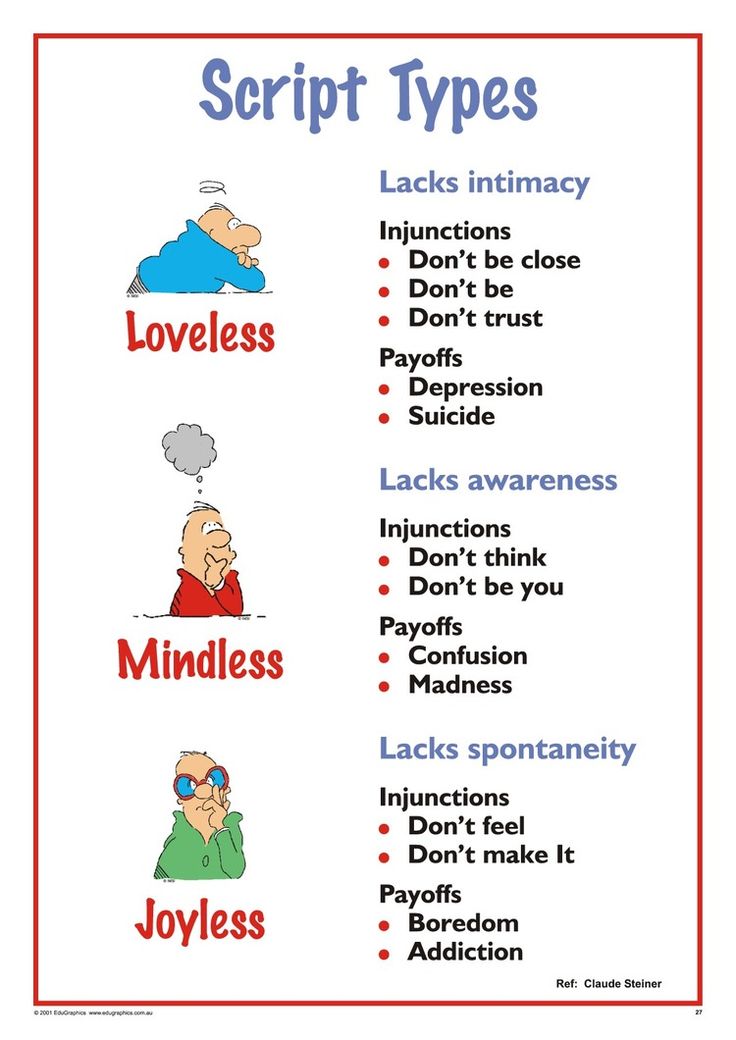 The greater your self-esteem is, paradoxically, the more you can be separate and autonomous and in turn, the greater is your capacity for closeness and intimacy. In fact, there are levels of intimacy.
The greater your self-esteem is, paradoxically, the more you can be separate and autonomous and in turn, the greater is your capacity for closeness and intimacy. In fact, there are levels of intimacy.
At the first level, you share information about yourself. It may be facts that you consider private or things only your family knows. Many people attach to strangers quickly. They yearn to merge in order to feel whole with the hopes that a relationship will boost their self-esteem and bring them happiness. Research has shown that even strangers sharing private information with each other for half an hour can fall in love if they stare into each other’s eyes for four minutes. However, intimacy isn’t merging, it’s being close. Most people confuse sharing and becoming attached with love and real intimacy.
At the second level, which is the most common in close relationships, you share feelings – feelings about anything and everyone, except yourself or each other or what’s happening in real-time. Most people consider this very intimate, and at this level of intimacy – or sooner – couples often start having sex.
Most people consider this very intimate, and at this level of intimacy – or sooner – couples often start having sex.
You might share your feelings about your work, family, or an ex, for example, but this is not the same as divulging feelings about yourself, so there isn’t too much risk involved. Sex at this level may not make you feel closer and can be used to avoid intimacy. Instead of feeling safe and close afterward, you can feel emptier than before. True intimacy requires trust that comes with knowing the other person. It’s not often that you can do this with someone you’ve known for a short time. You might tell a stranger on a plane all about yourself, but not reveal what you think about them or yourself, which is a higher level of intimacy.
At the third level, you’re being more open and sharing feelings about yourself. This is very intimate for most people but still lacks some elements of real intimacy. You may not be exposing deeper feelings; they may not be contemporaneous with what’s happening, or there may be a lack of mutuality. For instance, you could say that you feel proud, guilty, or embarrassed about something. When the feelings are negative, there’s greater fear of being rejected, so more safety is required.
For instance, you could say that you feel proud, guilty, or embarrassed about something. When the feelings are negative, there’s greater fear of being rejected, so more safety is required.
Sometimes, people share negative facts and feelings about themselves when first meeting or dating someone. It’s usually not in an intimate context and is designed to push you away or test if you still want to date them. Another instance would be sharing feelings with a stranger you won’t see again at a workshop or on a plane. There’s little risk because you have no investment in the relationship.
In some relationships, one person is the listener and the other shares feelings about a problem. Listening to each others’ pain and problems might feel intimate, but caretaking or controlling ignores the other person’s separateness and autonomy. It lacks mutuality and has been called pseudo-intimacy.
The Recipe for Real Intimacy
True intimacy requires an authenticity that involves being honest in the moment. It’s not about sharing your past or problems, but feelings about yourself, what’s happening with you right now, or towards the person you’re with. There’s a potent immediacy to it. Your thoughts and judgments aren’t feelings. Connecting with raw and honest feelings in the moment requires presence and awareness. You need self-esteem to feel secure about yourself, which allows you to be genuine without fear of being judged or rejected. Saying “I love you,” if not sincere, can be less intimate than saying, “I don’t love you.” When you sugar-coat the truth, you miss out on the beautiful experience of real intimacy. It requires courage, especially when you reveal something that might alienate the other person. It has the opposite effect unless you want to end the relationship. People know that they can trust your honesty and your relationships deepen.
It’s not about sharing your past or problems, but feelings about yourself, what’s happening with you right now, or towards the person you’re with. There’s a potent immediacy to it. Your thoughts and judgments aren’t feelings. Connecting with raw and honest feelings in the moment requires presence and awareness. You need self-esteem to feel secure about yourself, which allows you to be genuine without fear of being judged or rejected. Saying “I love you,” if not sincere, can be less intimate than saying, “I don’t love you.” When you sugar-coat the truth, you miss out on the beautiful experience of real intimacy. It requires courage, especially when you reveal something that might alienate the other person. It has the opposite effect unless you want to end the relationship. People know that they can trust your honesty and your relationships deepen.
Rather than merging or pretending that differences don’t exist in order to feel accepted, you’re acknowledging that you’re two, separate adults relating your internal experiences and honoring those differences.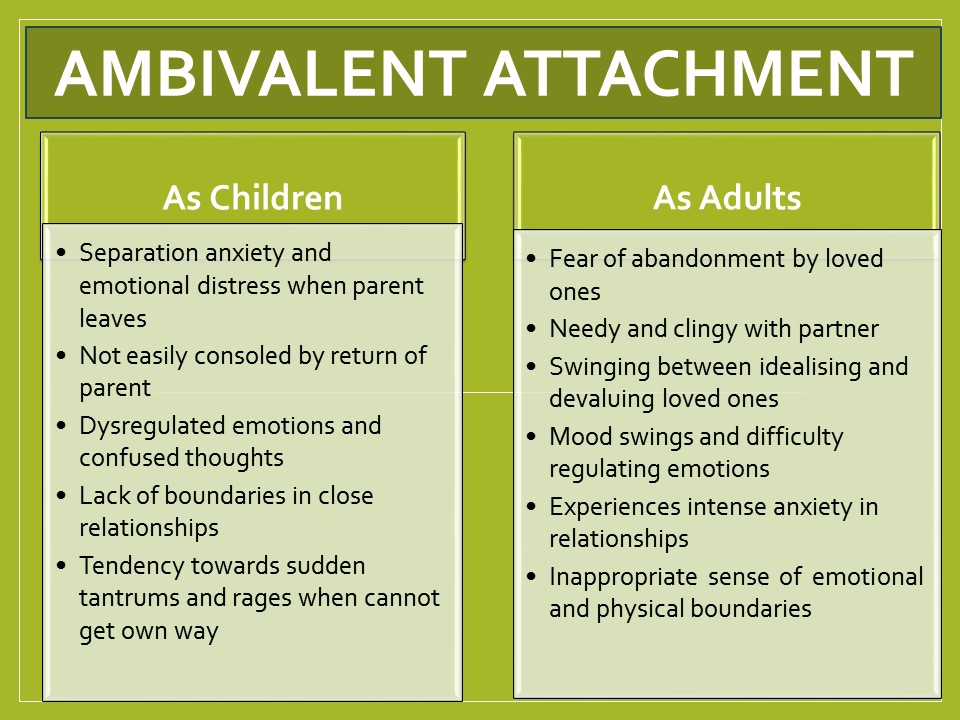 That’s where autonomy comes in. You have to know you can survive on your own; otherwise, if you’re too afraid of losing the relationship or losing yourself, you guard how much you reveal.
That’s where autonomy comes in. You have to know you can survive on your own; otherwise, if you’re too afraid of losing the relationship or losing yourself, you guard how much you reveal.
In summary, intimate conversations vary in their level of intimacy, but the deepest ones require:
- An authentic expression of deep feelings, not facts.
- Feelings that are in the present.
- Honoring one anothers’ separateness.
- Feelings discussed are about yourself or the person you’re with.
If you’d like to try this and don’t know how, you can start by telling the person you’re with that you want to feel closer, but that you’re not sure how or what to say. If you admit this when you feel it, it’s an authentic admission and a beginning of intimacy.
© Darlene Lancer, 2011, 2019
What to do if sex disappears from your relationship
February 4 Sex
Don't panic, it happens. The main thing is to find out the cause and try to eliminate it.
You are in a relationship, but at one moment the sex disappeared somewhere, even though the partner is here, next to you. It's cruel and unfair, but it happens. The main rule is to fantasize less, clarify more.
Think about the situation
Sometimes the temporary absence of sex is not a sudden difficulty, but a logical consequence of what is happening. For example, you just recently had a baby and now both are not up to sex, to improve sleep. Or you are both under a lot of stress.
If the amount of sex has decreased, and all the participants are not up to it now, nothing terrible happens. You just need to wait until this period ends. If the desire (at least you) is, but there is no sex, then we must admit: you have a problem and you need to deal with it.
Talk
Quite often people think up something themselves, but don't talk to their partner. This is understandable: many couples feel uncomfortable talking about sex. But talking is power. It is he who helps to know for sure what the problem is.
It is he who helps to know for sure what the problem is.
Alexandra Ivanova
Psychologist-consultant practicing in the Transactional Analysis modality.
If a conversation is necessary, follow two rules. First, speak only from the I-messages, avoiding blame from your partner. Second, talk about your feelings.
Instead of saying “You don’t satisfy me” or “You are a bad lover” (accusation), share with your partner how you feel: “I feel unsatisfied”, “I really want sex!” or more modestly: "I miss your caresses so much." And add a sentence on what to do about it: "Let's talk about it?".
“Do not hesitate to recall some dizzying sex from the past: “Like then, remember. You just drove me crazy." This will allow the partner to hear your need, feel needed and desired. The offer of dialogue will give him the opportunity to express himself. Building a further conversation, be guided by these rules, even if your partner behaves differently, ”advises the psychologist.
You can give your partner time to prepare and ask when it would be convenient for him to talk. If in response to the question "What is happening?" you hear only "Nothing" - it is not a conversation. You need to insist on a detailed answer. If your partner dodges in every possible way, explain that you are determined to talk and clarify everything, even if you have to overcome awkwardness.
It is also important to try to be as sincere and open as possible. Hiding and hiding is a failed strategy for such conversations.
Remember the basic rules for these conversations:
- Use I-statements.
- Talk about your feelings and experiences.
- Do not jump to conclusions.
- Be delicate.
The process of sharing emotions and worries can be healing in itself. The main thing is to start.
Don't blame yourself
Alexandra Ivanova
The absence of sex in a couple is an unspoken agreement accepted by both parties. Therefore, I suggest not to be tormented by guilt, because when we want to make amends for it, we do more for the partner than is necessary, we make concessions more often, and your partner wins twice: he not only avoids intimacy, but also receives additional bonuses for this. Deep inside you understand the dishonesty of this situation and accumulate irritation. So guilt will not help you.
Therefore, I suggest not to be tormented by guilt, because when we want to make amends for it, we do more for the partner than is necessary, we make concessions more often, and your partner wins twice: he not only avoids intimacy, but also receives additional bonuses for this. Deep inside you understand the dishonesty of this situation and accumulate irritation. So guilt will not help you.
Sexual desire is flexible and mobile, it is influenced by different things: from the state of the hormonal background to the degree of load at work. And it’s not at all a fact that the reason is in you. Therefore, there is no need to look for the one who is to blame. We must decide what to do.
Find the cause
Sex educator Emily Nagoski points out that the brain controls sexual desire through a simple throttle-brake system.
Emily Nagoski
Sex education expert, author of books and scientific publications.
There is a gas pedal in the brain that responds to sexual stimuli: everything we hear, see, smell and taste what we feel, what we touch, what we imagine - and what our brain is used to associate with sexual arousal.
There is also a brake in the brain that reacts to possible threats: again, everything that we hear, see, smell and taste what we feel, what we touch, what we imagine - and what our brain is used to interpreting as a reason to suppress arousal.
There is no sudden loss of sexual desire without any reason. It can be anything:
- health problems;
- drug reaction;
- depression;
- grief;
- pregnancy or childbirth;
- lack of confidence in oneself and one's body;
- chronic work stress;
- financial problems.
Or maybe the partner is simply tired of taking the initiative himself and is waiting for you to show it. In other words, there are many options.
Think about possible changes
The main task is to remove the factors that interfere with attraction. Think about what you as a partner can do to change the situation.
Emily Nagoski draws attention to how contextual the stimuli are that make people feel (or not feel) sexual desire when the problem is lack of emotional connection and support.
Emily Nagoski
Imagine that you are watching your partner load the washing machine. If in this relationship you feel supported and emotionally connected, then such a sight can cause you erotic thoughts.
But if you are dissatisfied with the fact that, say, lately you have had to do most of the laundry, then you just think: “Well, finally!” - and no sexual fantasies.
If the problem is somewhere on the spectrum of team interaction, you can't just leave things as they are and wait for the return of sex as a matter of course. It is worth showing more care and involvement in the life of a partner: meet after work and talk about how the day went, share household tasks, go to a new movie together that he has long wanted to see. Sometimes even a cup of tea brewed on time is a significant gesture of support.
Be patient
In one case, it is enough to change oral contraceptives, which suppressed libido, and desire will return. In another, it will take time, new emotions and a redistribution of responsibilities.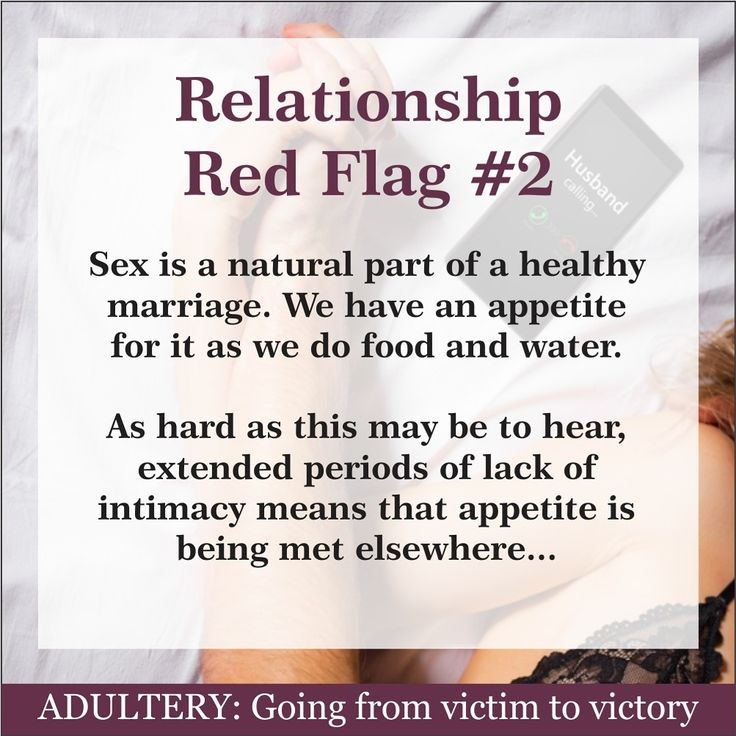 Desire may not come immediately. All you have to do is wait and be open to sex.
Desire may not come immediately. All you have to do is wait and be open to sex.
Stop worrying about the instability of the sex schedule
Always the same amount of sex in a couple - this is almost an unrealistic situation for living people. A person is not a sex machine, a lot of things happen in life that affect intimacy. And this is the norm.
If a couple does not have sex for some time, this does not mean that it will always be like this now. Everyone can experience stress, autumn blues, or poorly selected antidepressants.
The opinion that there is more sex in free relationships, but it dies in marital relationships is just one of the myths. Sexual activity fluctuates even within a year, rising in summer and falling in winter with a surge on New Year's holidays, to say nothing of a longer period of time.
Relationships do not give unlimited access to the partner's body. Sexual life is a matter of consent, agreements and individual preferences. If you both want to continue the relationship and have sex, treat the temporary lack of intimacy as a quest in which you are one team and must pass the test together.
If you both want to continue the relationship and have sex, treat the temporary lack of intimacy as a quest in which you are one team and must pass the test together.
Read also 🧐
- What happens to our body when we stop having sex
- Why it hurts to have sex and what to do about it
- What to do if sex ends quickly
Relationships without sex: a norm or a problem?
Published:
There are couples who completely refuse sex. Partners maintain platonic relationships, live together, but there is no place for intimacy in their lives. What are relationships without sexual intimacy and why are they becoming more popular?
What are relationships without sexual intimacy and why are they becoming more popular?
What is a relationship without sex and how does it happen
According to Amy Muise, professor of psychology at the University of York, sexual satisfaction affects all aspects of a love relationship. Despite this, relationships without intimacy are becoming increasingly popular. Couples consciously refuse sex and build a life together only on deep affection, respect, and trust.
What is a relationship without sex? This is a marriage or love affair between two partners, in which there is no intimate relationship. In society, this phenomenon is perceived with surprise. This communication format is chosen by many couples who do not experience discomfort without intimacy. Building relationships, they focus on spiritual intimacy, emotional attraction, empathy, mutual respect.
How does a relationship without sex: Pexels What is the name of a relationship without sex? Relationships in which people do not need sexual contact are called platonic love.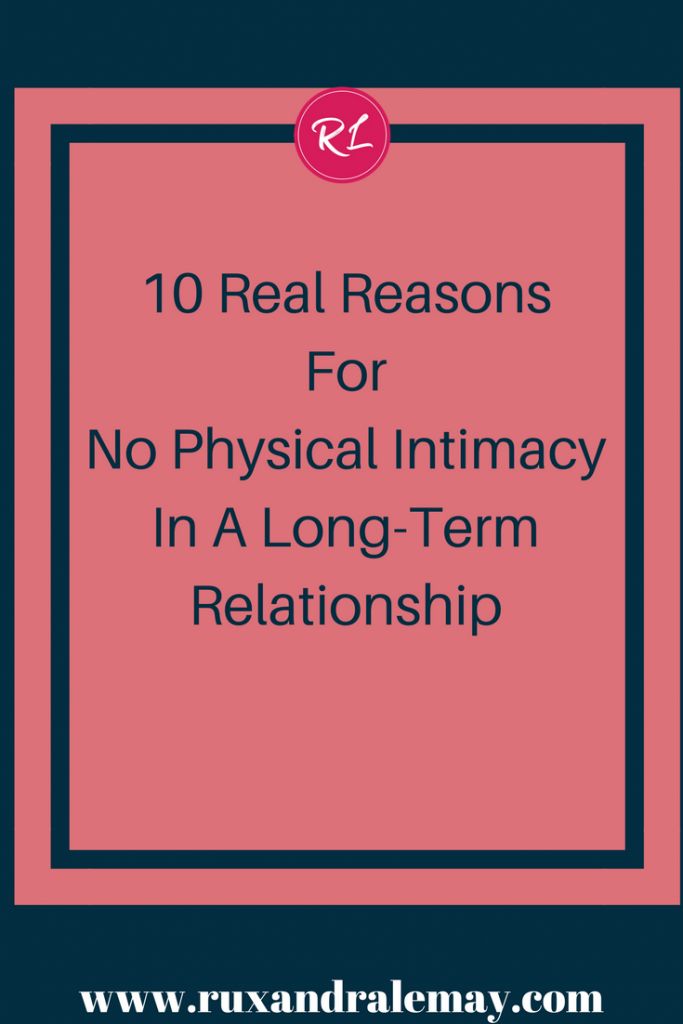 For the first time this topic was raised by the ancient Greek philosopher Plato, who described the spiritual connection of a teacher with his students. Later, according to the author of the book "Psychology of Love" Yevgeny Ilyin, this concept extended to the spiritual relationship of lovers, which do not involve sensual or sexual contact.
For the first time this topic was raised by the ancient Greek philosopher Plato, who described the spiritual connection of a teacher with his students. Later, according to the author of the book "Psychology of Love" Yevgeny Ilyin, this concept extended to the spiritual relationship of lovers, which do not involve sensual or sexual contact.
Why do relationships arise without sex? There are several reasons for the emergence of platonic relationships and marriages in which partners do not have sex. Here are the most significant ones:
- Loss of interest in sex. After a long relationship, partners lose the need for sex and love games. Over time, intimacy disappears from the life of a couple.
- State of health. Rejection of physical intimacy is sometimes associated with recent childbirth or late pregnancy. The reason for the lack of sex in a couple can be impotence, menopause and other health problems.
- Psychological problems. In a couple there are all kinds of complexes, unresolved conflicts or a subconscious fear of intimacy in one of the partners.
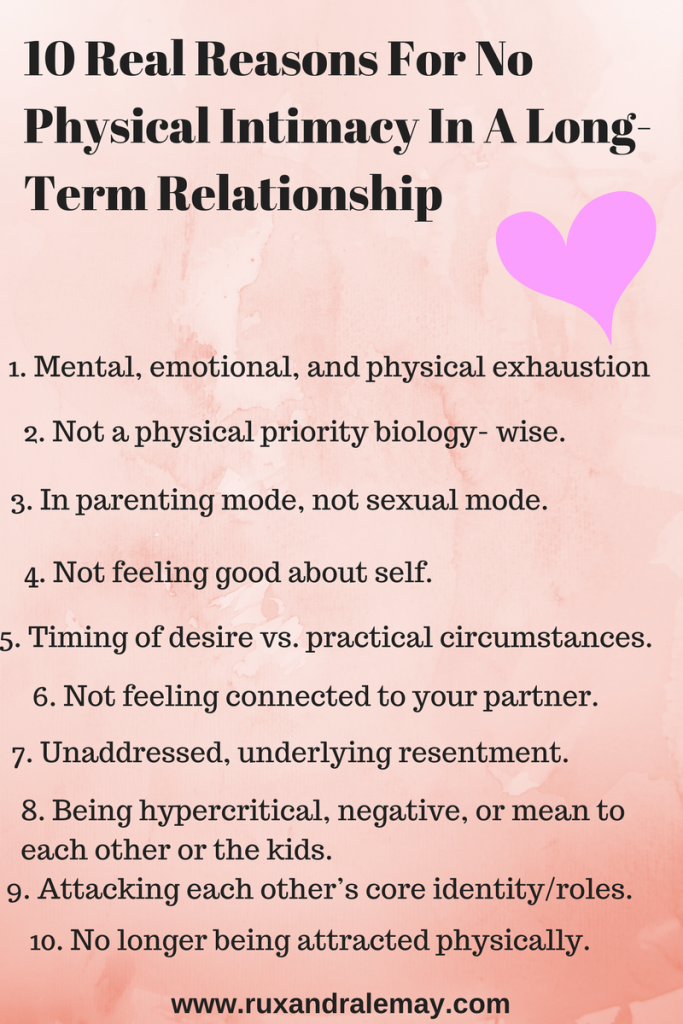
- Relations at a distance. Due to the epidemiological situation and modern realities, couples are increasingly agreeing to separate residence. Often they live, study, work in different cities and even countries for months. This minimizes the possibility of sexual relations, but does not interfere with the spiritual connection of partners.
- The difference in sexual tastes. A person likes a relationship with a partner, but sex with him does not bring pleasure.
- The original arrangement of the couple. Entering into a relationship, some people agree on a similar format of living together. Such a desire may be dictated by a low sexual temperament. According to psychologist Yaroslav Samoilov, the owners of such a temperament are not worried about the lack of intimacy. They focus on spending time together and spiritual development, refusing the need to satisfy each other sexually.
Relationship without sex: a problem or a norm
The father of psychoanalysis and author of The Psychology of Sexuality, Sigmund Freud, considered a couple's lack of sexual life a deviation. Decades later, the Japanese questioned his opinion. More and more married couples in the Land of the Rising Sun refuse intimacy, gradually turning relationships without sex into a fashion trend.
Decades later, the Japanese questioned his opinion. More and more married couples in the Land of the Rising Sun refuse intimacy, gradually turning relationships without sex into a fashion trend.
In the post-Soviet space, the main task of the representatives of the beautiful time is still considered the birth of children, a woman is perceived as a sexual object. In this regard, relationships without sex are surprising to society, however, this model of behavior is becoming more and more popular.
Why are relationships without sex popular? Interest in the lack of intimacy is dictated by several reasons. Refusal of sex contributes to the improvement of the mental and psychological health of partners. This gives the couple the opportunity to:
- develop other aspects of their life together;
- build a career;
- learn new professions;
- engage in business;
- realize creative potential;
- pay more attention to health problems and treatment.

Learn more

/nginx/o/2019/08/15/12467881t1he799.jpg)







